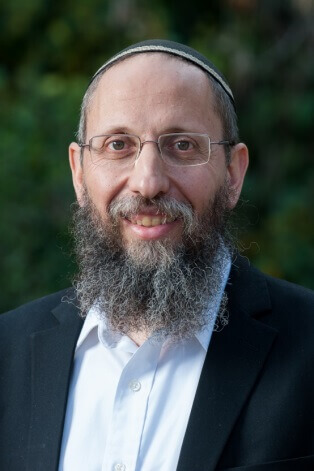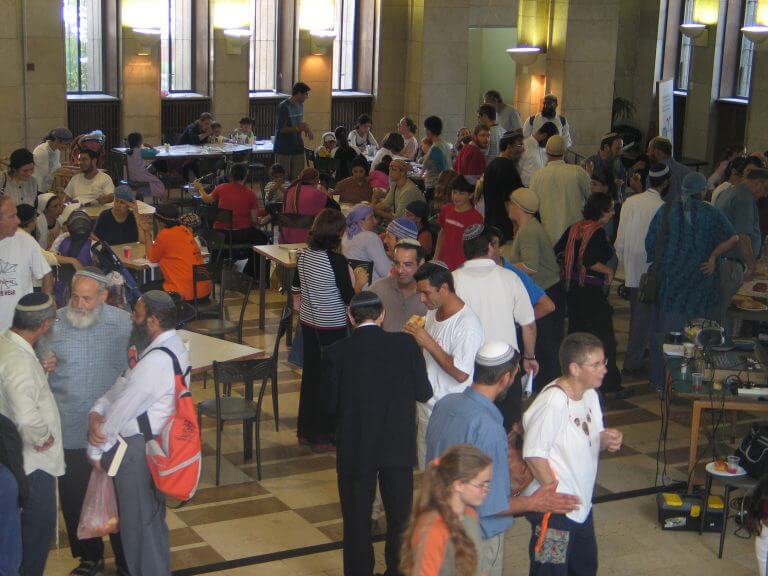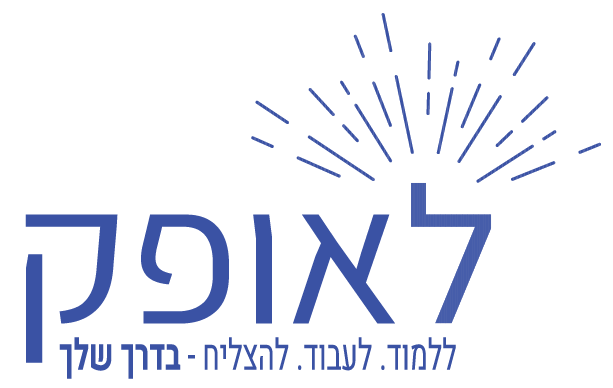An exclusive interview with Rav Yosef Zvi Rimon about ‘JobKatif’ a nonprofit organization to aid the Gush Katif evacuees in finding employment he established 15 years ago, about the employment programs he has developed since, about the unemployment crisis in the wake of the COVID-19, and about what the state must do immediately to solve the employment crisis.
Clue: Listen.
August 16, 2005. On the morning of the disengagement from the Gush Katif settlements, Rav Yosef Zvi Rimon, then the community rabbi of Alon Shvut South, receives a phone call from the rabbis of Gush Katif. They ask him to check whether the designated hotels are willing and prepared to receive the evacuated families. When he arrives, it is clear to him that the hotels are,in fact, unprepared. He rolls up his sleeves, recruits volunteers and together they take care of whatever is needed.
“Indeed 15 years have passed”, tells Rav Rimon, “but until today I remember the harsh and charged atmosphere that was there. Families displaced in the full sense of the word, families that were left not knowing what will happen to them tomorrow”. “Very quickly I identified that the most burning issue is employment. 85% of the evacuees worked within Gush Katif and all of them became unemployed overnight. I saw people who worked all their lives, wandering throughout the hotel without knowing what to do with themselves. I understood that in order to prevent them from drowning in their mental difficulties, I needed, first and foremost to see to it that they will have something to do. At first, only for the very notion of employment itself and very quickly due to the heavy economic concern in addition to the growing mental burden.

And as the words of the Rambam (Mishneh Torah, Hilchot Matanot Aniyim 10, 7) “The highest level beyond which there is none is a person who supports a Jew who has fallen into poverty [by] giving him a present or a loan, entering into partnership with him, or finding him work so that his hand will be fortified so that he will not have to ask others [for alms].”
Along with this seminal understanding, Rav Rimon went to the government offices and asked about their promise to find employment for each evacuee. When they responded that they are unable to find them work, not even temporary, until they know for sure where they will live, Rav Rimon understood the magnitude of the hour and decided to, along with the volunteers, find as many work places as possible, albeit temporary at first.
“At the end of the first day, I saw them returning to the hotel with a light in their eyes”, Rabbi Rimon
“The days were the days of the month of Av and in a little while the month of Elul. I knew that in this period Sukkot manufacturers are beginning to work. I called “Sukkot Jerusalem”, told them about the employment distress of the evacuees, and on that very same day 17 evacuees began to work there. The effect was instantaneous, already at the end of the first working day I saw them returning to the hotel with light in their eyes”.
“I’m a rabbi, writing books and most of the day am engaged in Halacha. Employee placement isn’t my field of expertise. But when I saw that, on the one hand, help isn’t really arriving from other entities, and on the other hand, we were bringing some help, I decided to establish a non-profit organization exclusively dedicated to finding employment for the Gush Katif evacuees. That’s how ‘JobKatif (Ta’asukatif)’ was established.
All of a sudden, a man rises in the morning and manages to do what the state should have done
Three years later ‘JobKatif’ succeeded in finding jobs for 800 evacuees and helped open 150 businesses. The State Inquiry Committee appointed to evaluate the actions vis a vis the evacuees emphatically declared that ‘JobKatif’ accomplished what the state should have done’.
The State Inquiry Committee was impressed with ‘JobKatif’s’ work, and therefore decided to collaborate with it to bring an end to the employment crisis of the Gush Katif evacuees. During the same year, Rav Rimon was granted the Presidential Award for Volunteeerism in recognition for his actions. Over the course of the next few years, ‘JobKatif’ enabled some 3,000 evacuees to find jobs and establish dozens of businesses. “Success gives you a lot of strength and receiving the Presidential Award for Volunteerism from Shimon Peres (z”l) I felt that there the State of Israel recognized and appreciated the vital work of ‘JobKatif’. It’s important to understand that most of my world lies in the study, teaching and practice of Torah. I believe that the Torah is replete with divine grace and I feel privileged that the Holy One Blessed Be He brought me to this place”.

“Without ‘JobKatif’ we would have probably left the country”
Pnina Eizen was evacuated along with her husband and six children from the Alei Sinai, one of 17 settlements in Gush Katif. When she remembers the disengagement, it’s impossible to not feel the pain, frustration and helplessness which accompanied her then. “In the days after the disengagement we couldn’t find ourselves and were unable to find jobs”, she recalls. “We went to the Employment Office but they didn’t understand the situation enough, and sent me to a pedicure course, despite the fact that this occupation was completely irrelevant for me. That was frustrating. I was very sad, crushed, frustrated. I was in a state of depression. We felt that everything was closing in on us, that our needs are invisible to the public and the government. The state threw us out of our homes and left us helpless. For six years we had to battle Israeli bureaucracy just to receive compensation owed to us. We frequently had to change residence, and all of our failed attempts to find work, and the overwhelming disappointment and frustration, almost made us leave the country and return to my husband’s country of origin. Without ‘JobKatif’ this would have happened”.
The turning point in the lives of the Eizen family occurred when she began working at the Manor Rishon subscribers’ call center in Nitzan, one of a number of ‘JobKatif’ initiatives. ‘JobKatif’ went far beyond ‘just finding employment’ or throwing a course in someone’s direction. Instead, specially trained volunteers visited each evacuee in his home. “They listened to us, understood what we did for a living before the disengagement, what skills we possessed and how they may be applicable to other employment fields. They dealt with each one of us individually. This was the first time that there was someone who simply listened to us, heard what we had to say, guided us to a relevant and satisfactory job, funded training, and supported us in every way with the overarching goal that we should succeed. Even today, so many years later, every time I speak about ‘JobKatif’ and Rav Rimon I’m on the verge of tears. He really saved me and my family from the dark place we were in”.
“I felt that here is a place where I can get an honest answer and a genuine business guidance”
David Barketer also received employment help from ‘JobKatif’ after the disengagement. Previously, David was employed by a computing service company. After the disengagement, he found himself unemployed. “Although young, I dreamed of opening my own computer service business. “I knew more or less what I wanted, but ‘JobKatif gave me the financial aid that we desperately needed in the beginning and shepherded me professionally concerning the establishment and management of the business. They did everything to ensure our success. We felt that here is a place where we can get an honest answer and genuine guidance”.
A state body which will focus on the employment crisis created by COVID-19
In the wake of the success of the “JobKatif method”, as Rav Rimon calls it, he has decided to expand to other areas. J’obKatif’ changed its name to ‘La’Ofek’ in 2019 and offers a wide variety of employment-cantered programs: ‘Achotenu’ to empower Ethiopian-Israeli young adults to gain academic nursing degrees at the Hebrew University School of Nursing, and ‘Ta’asuchayil’ to provide short-term employment solutions for at risk IDF soldiers with IDF approved furloughs so that they can complete their military service with pride.
Now Rav Rimon and ‘La’Ofek’ are applying the experience accumulated over the past 15 years to create effective and viable solutions to the current COVID-19 pandemic employment crisis. Perhaps decision makers should listen to what he has to say.

“One of the first things that I noticed after the disengagement was that a considerable number of evacuees simply couldn’t re-engage in their profession, farmers for instance. They needed to learn a new profession and new skills. I also noticed that professional training programs are often disconnected from the individual, his knowledge, soft skills and capabilities. Guaranteeing employment following a training course is inadequate. Rather, it’s vital to focus training in sought professions, make sure there’s a proper fit to the individual and job satisfaction. We must also provide solutions for talented people who have difficulty learning something new”.
Bureaucracy is incapable of working in emergency situations
Based on his experience, Rav Rimon now recommends that the government form a special body to focus on the COVID-19 employment crisis. In his view such a body is needed to analyze the barriers that are holding back the individual. Any effective program must offer job seekers training and personal mentoring during the job search and thereafter through the first year of employment. “To solve the crisis the state needs to map out the individual difficulties of job seekers in this period, to identify the needs and skills, to strengthen these people and offer them guidance so that they can easily pave a new route”.
“The state can certainly resolve most of the employment problems”, Rav Rimon points out, “but for that to happen we need to quickly think differently and remember that bureaucracy is incapable of work in emergency situations. The meaning of emergency situations is that we need to shorten processes, circumvent bureaucracy, think, and act outside the box. And if the state doesn’t know how to do it, it should turn to those non-profit organizations that do know and empower them to solve the crisis together. If we conduct ourselves now with the usual bureaucracy, we won’t be able to get out of this and achieve our goal.
Rav Rimon closes with a quote from one of his grandfather’s, Rav Yosef Zvi Rimon, poems:
